”I couldn’t provide the three daily meals for my family.”
56-year-old Daouda Keita is a farmer in Koulikoro, Mali. Like many others in Mali, he struggled to put food on the table for his family.
Poverty and hunger are rampant in the West African nation. More than 78% of people are living in poverty and, depending on the season, as many as 1.2 million people are food insecure. The challenging climate drives many landowners to turn away from farming. But conflict and civil unrest make earning a steady income an uphill battle for the average Malian family.
“I lost my job in the gold mines because recurrent terrorist attacks prevented work in these mines,” says Modibo Keita.
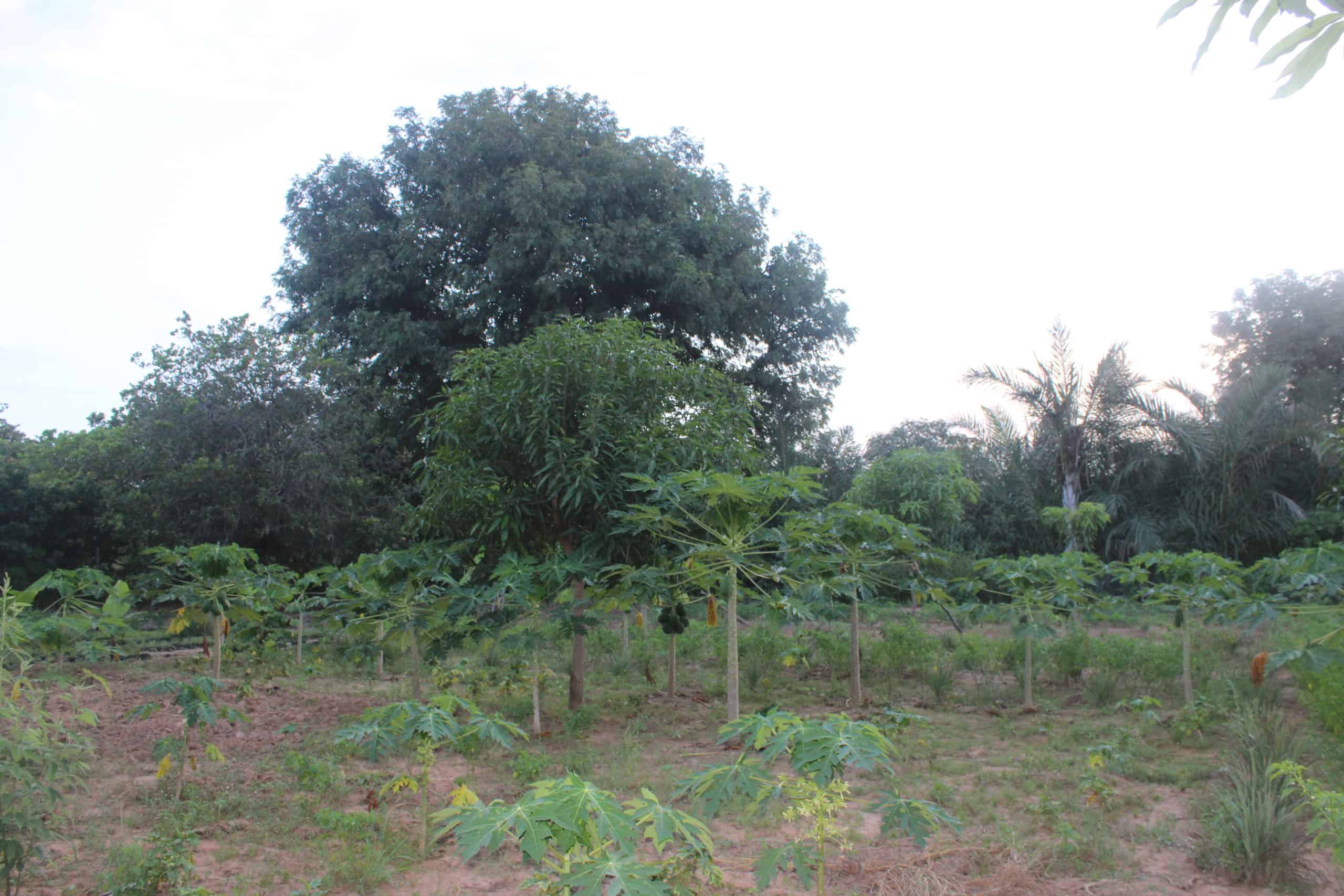
A Forest Garden begins to take shape in Koulikoro, Mali.
Joining Trees for the Future
Shortly after losing his job in the mines, Modibo joined Trees for the Future’s (TREES) Forest Garden training program. Accompanied by Daouda and 248 other farmers from Koulikoro, Modibo started learning how to transform his degraded land through agroforestry and regenerative farming practices.
”Trees for the Future has brought a new lease on life to our difficult daily lives,” he says.
Farmers receive the training, seeds, and resources they need to establish Forest Gardens on their own land. The average Forest Garden has 2,500 – 4,000 trees growing on it by year four of the program. Farmers are growing dozens of species of resource trees, fruit trees, vegetables, grains, and herbs – all supporting the health of the land and providing for the family.
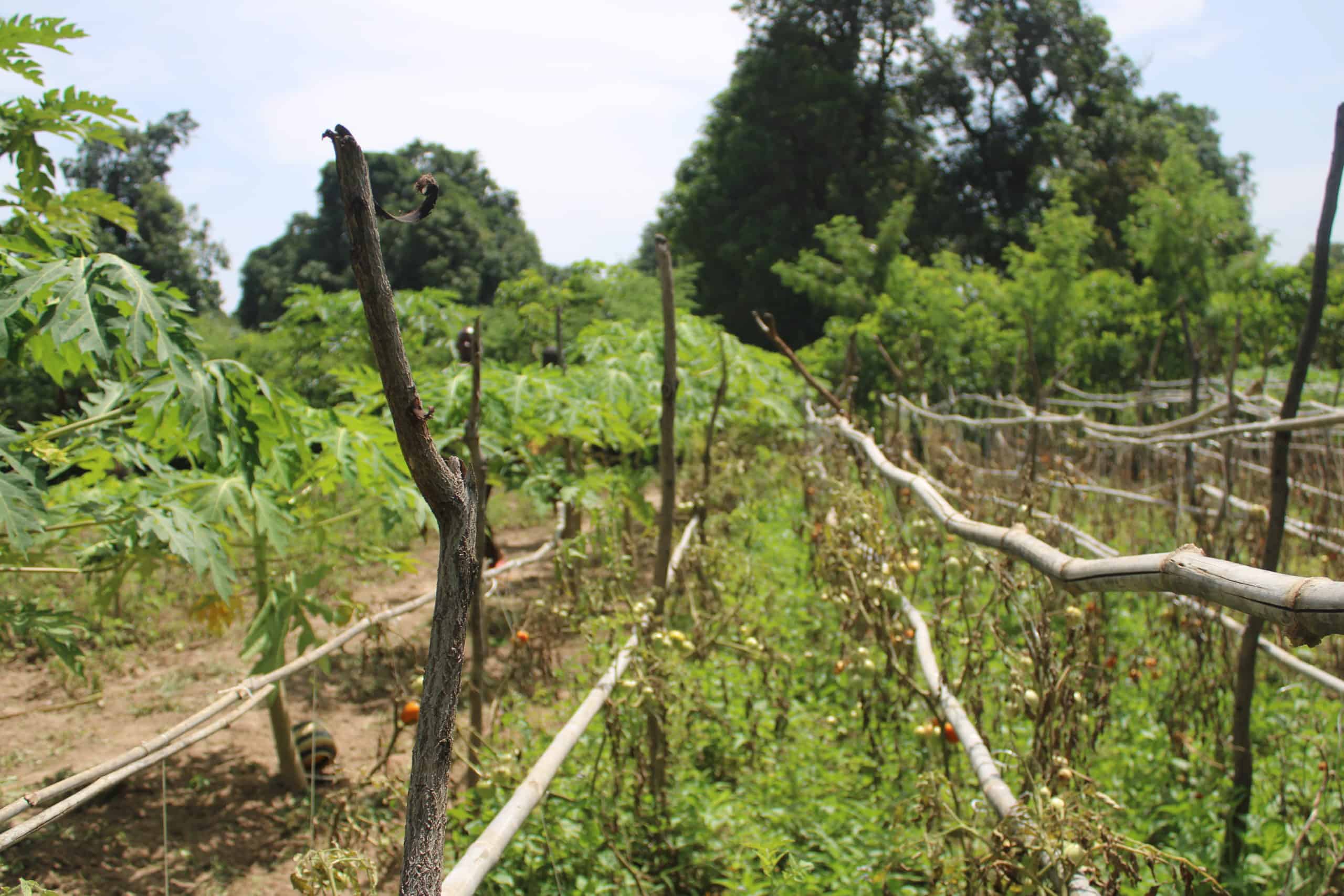
The Difference a Forest Garden Makes
“TREES has changed my life,” says Daouda (pictured below).
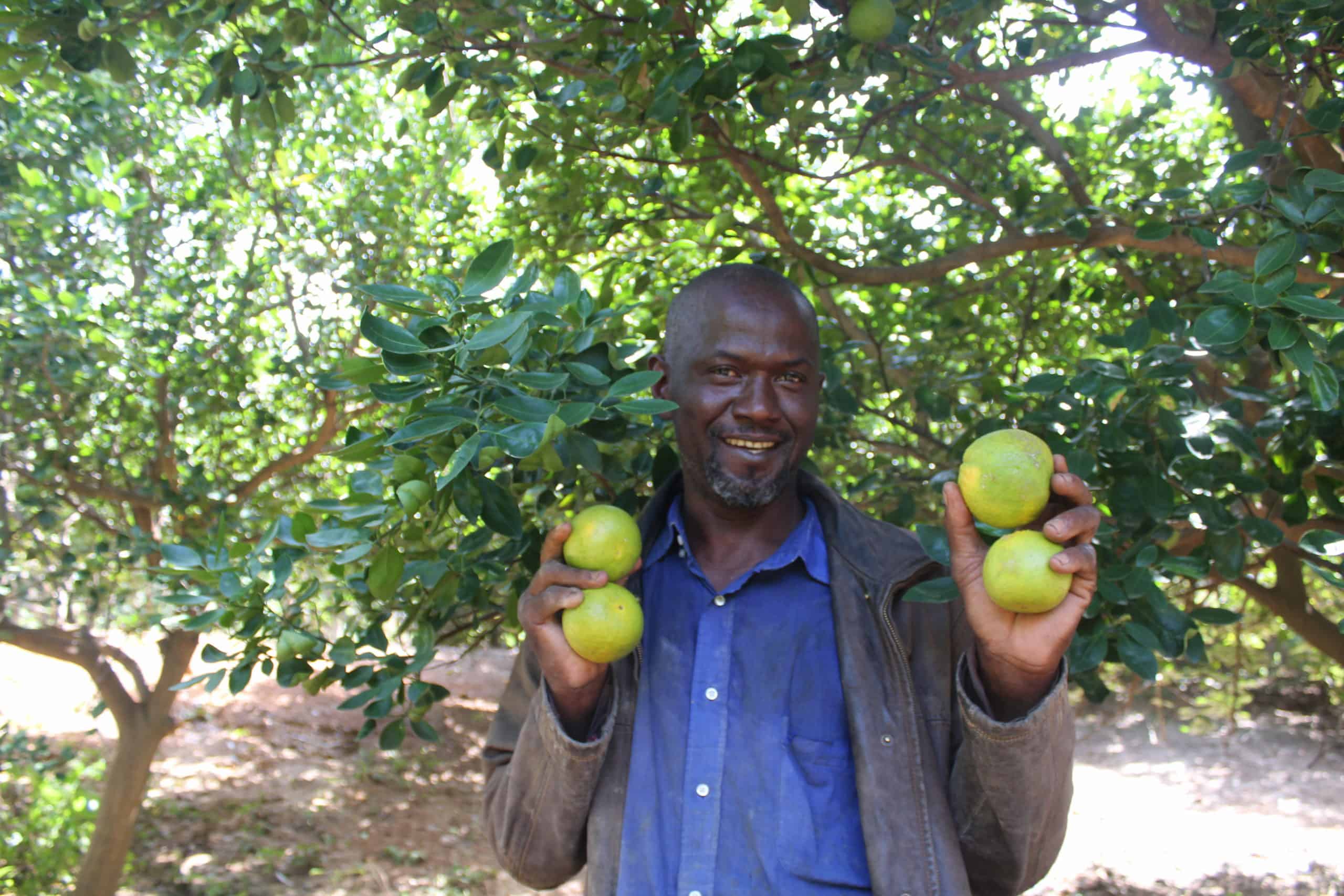
“Since the first harvest, I have been able to feed my family well,” says Dramane Coulibaly.
“TREES offered us the chance of a lifetime and we are now eating our fill!” says Seydou Togola (below), a Koulikoro project participant.
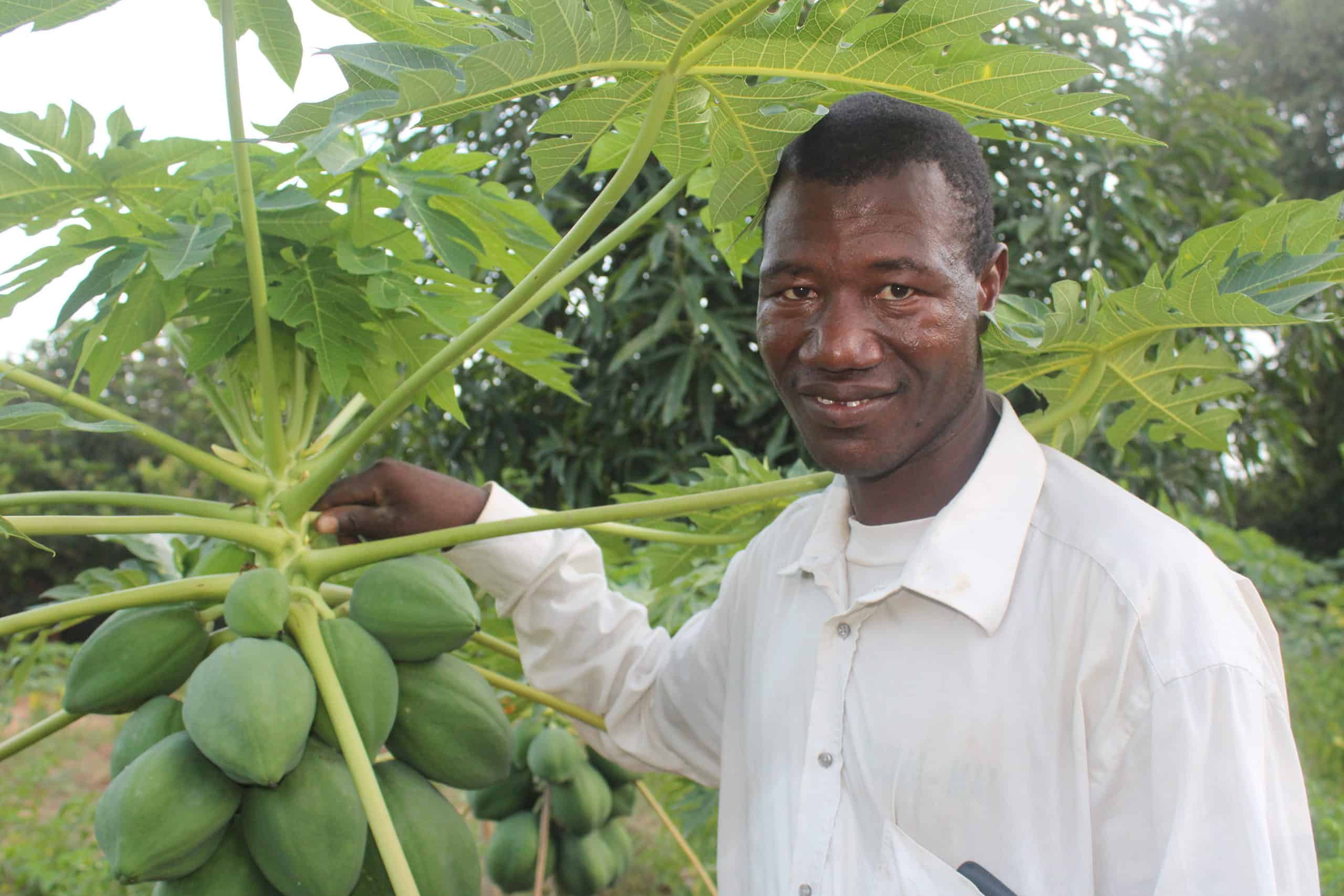
A 2022 TREES study found that Forest Garden farmers and their families exceeded the global target for food security in just two years. And what isn’t consumed by the household is sold for a reliable income.
Earning a Reliable Income
“Notwithstanding food security, this project opens up enormous economic opportunities in a landlocked area where nothing happens,” says Diakaridia Coulibaly, TREES senior technician in the area.
“With the onion seeds that TREES gave me, I earned 1,450,250 fcfa ($2,286 USD),” Dramane says. “I have been sending my children to the village elementary school.”
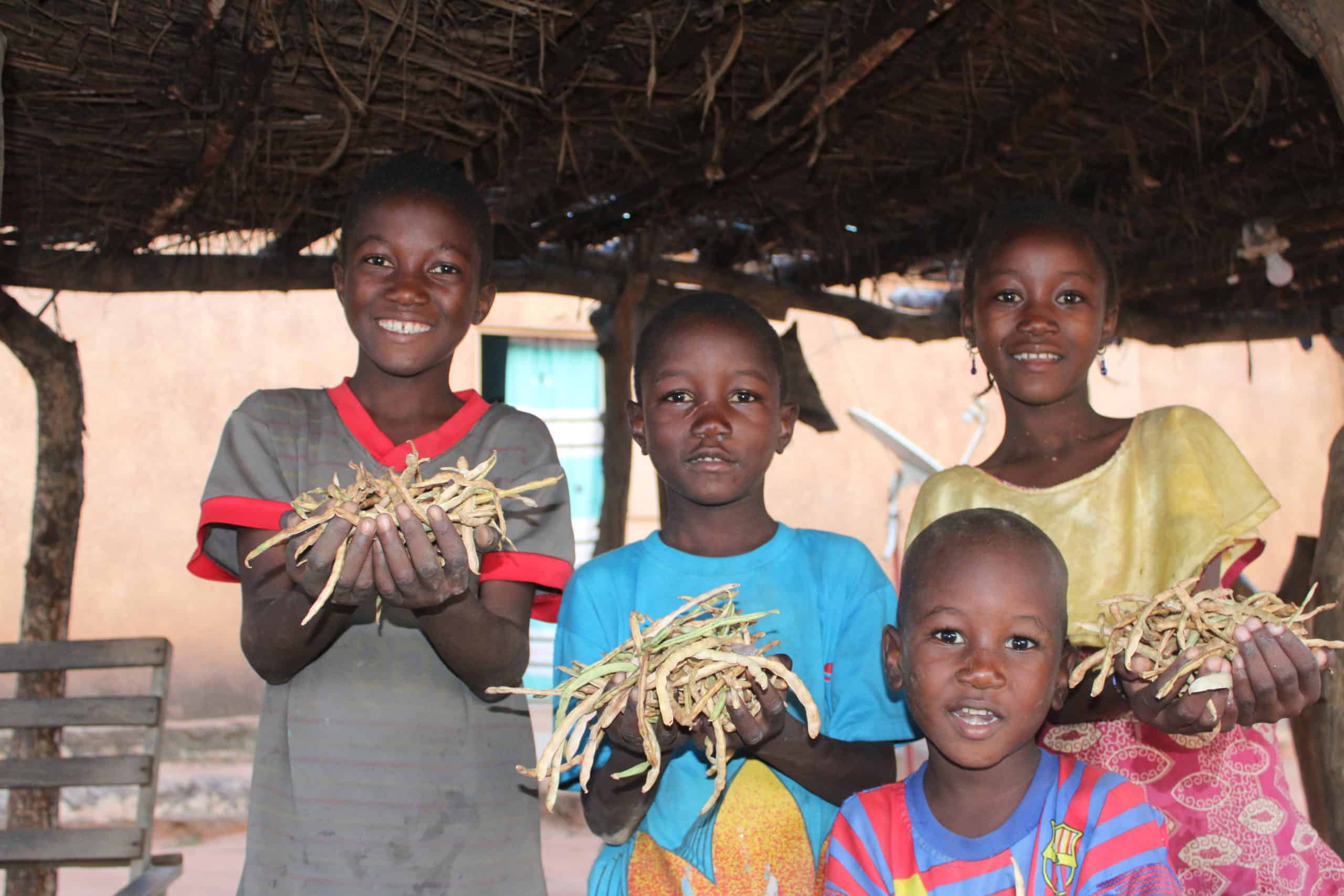
“With the proceeds of my crops I was able to purchase three oxen and a motorcycle,” Modibo says. “TREES has given me the opportunity to settle permanently in my village and to earn a good living there.”
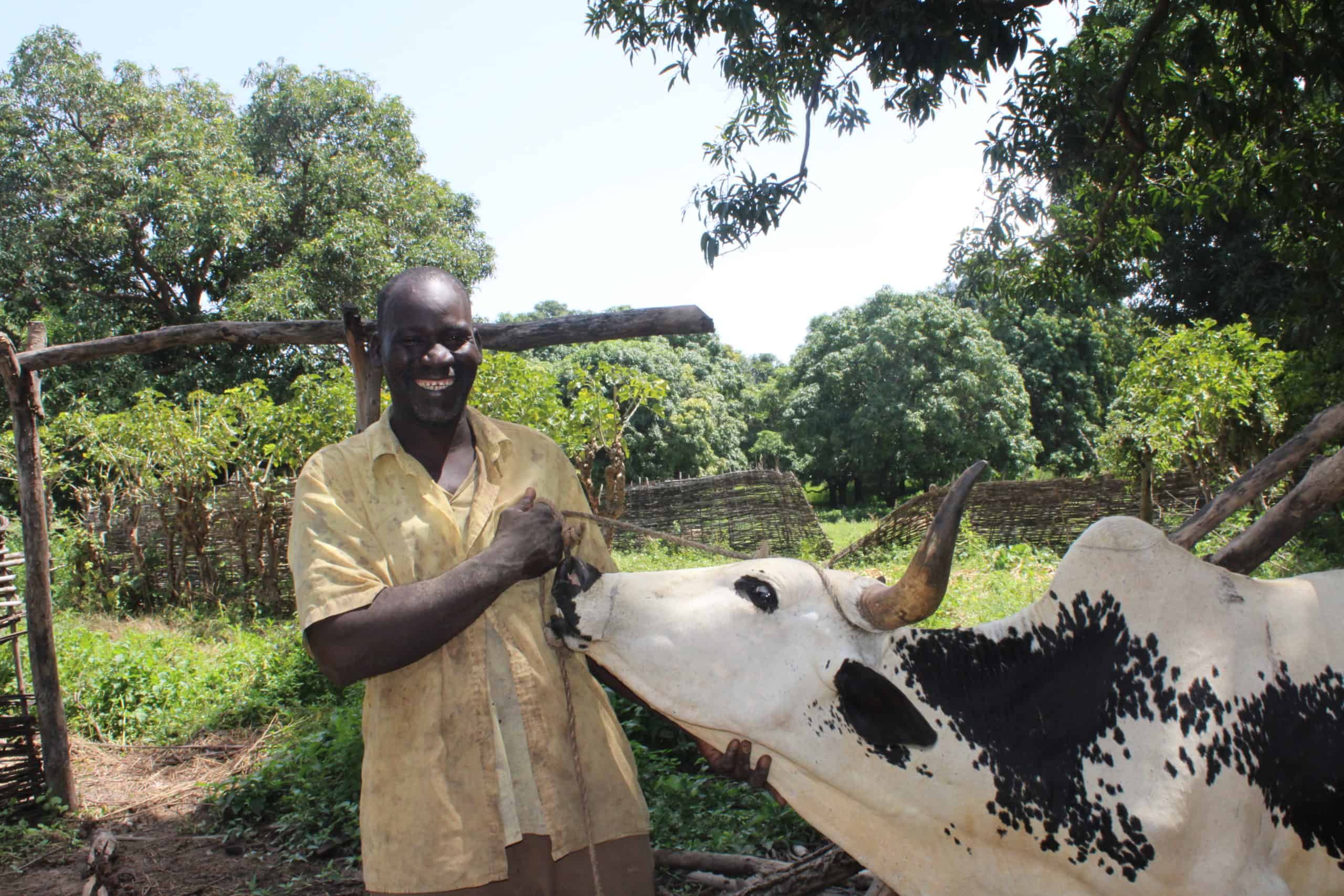
The farmers are in year two of the training program. They’ll continue receiving support from TREES staff over the next two years. Modibo says one of the best things about the program is that it provides ongoing knowledge even after the project ends.
A Future Secured
“TREES saved us from an uncertain and hopeless life,” Modibo says.
”This project has changed the life of our community and ensured a safer future for our children,” Seydou adds.
Help provide land and life-changing education to farmers like Modibo. Donate to Trees for the Future today.
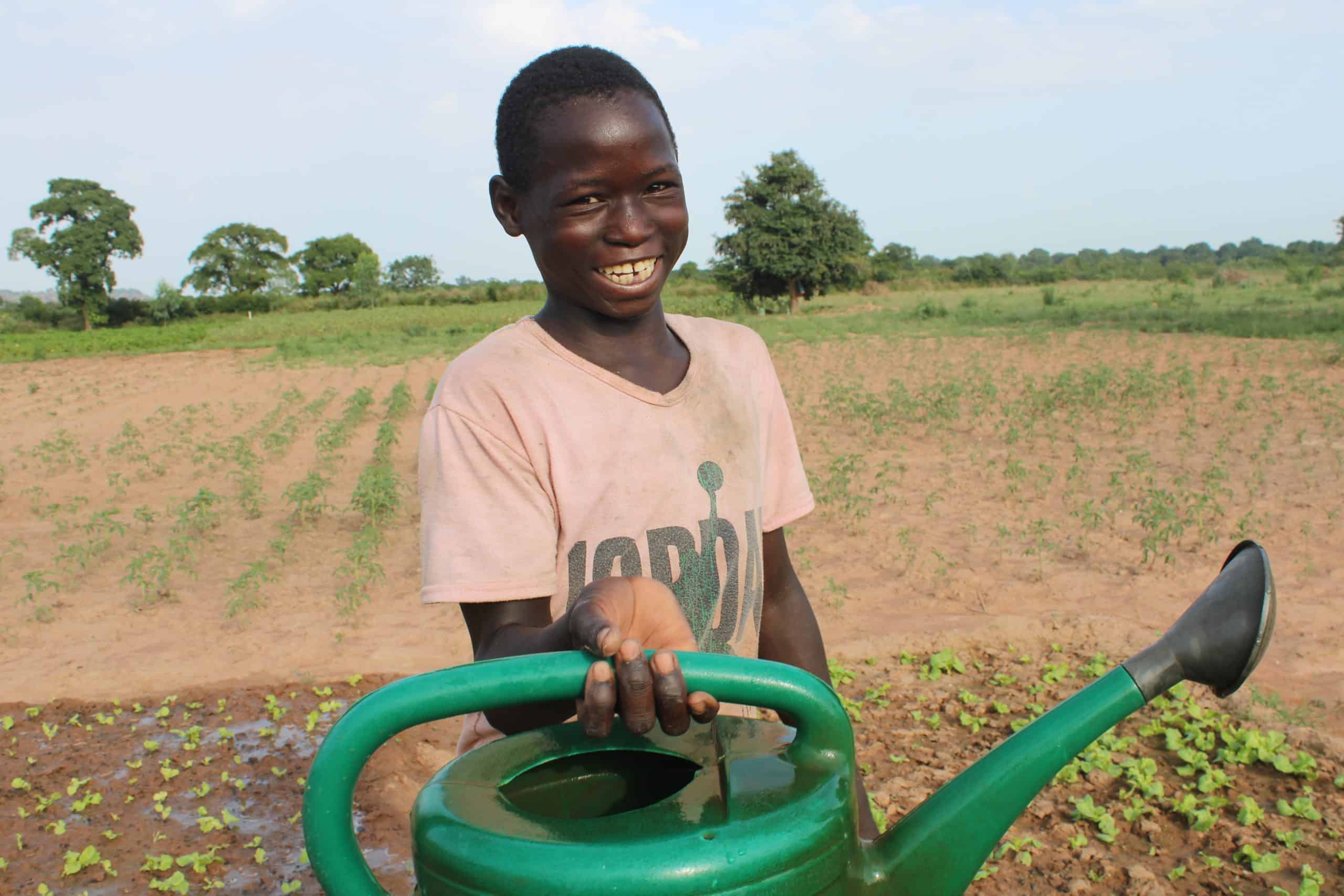
Program participants pass their agroforestry knowledge onto their children.